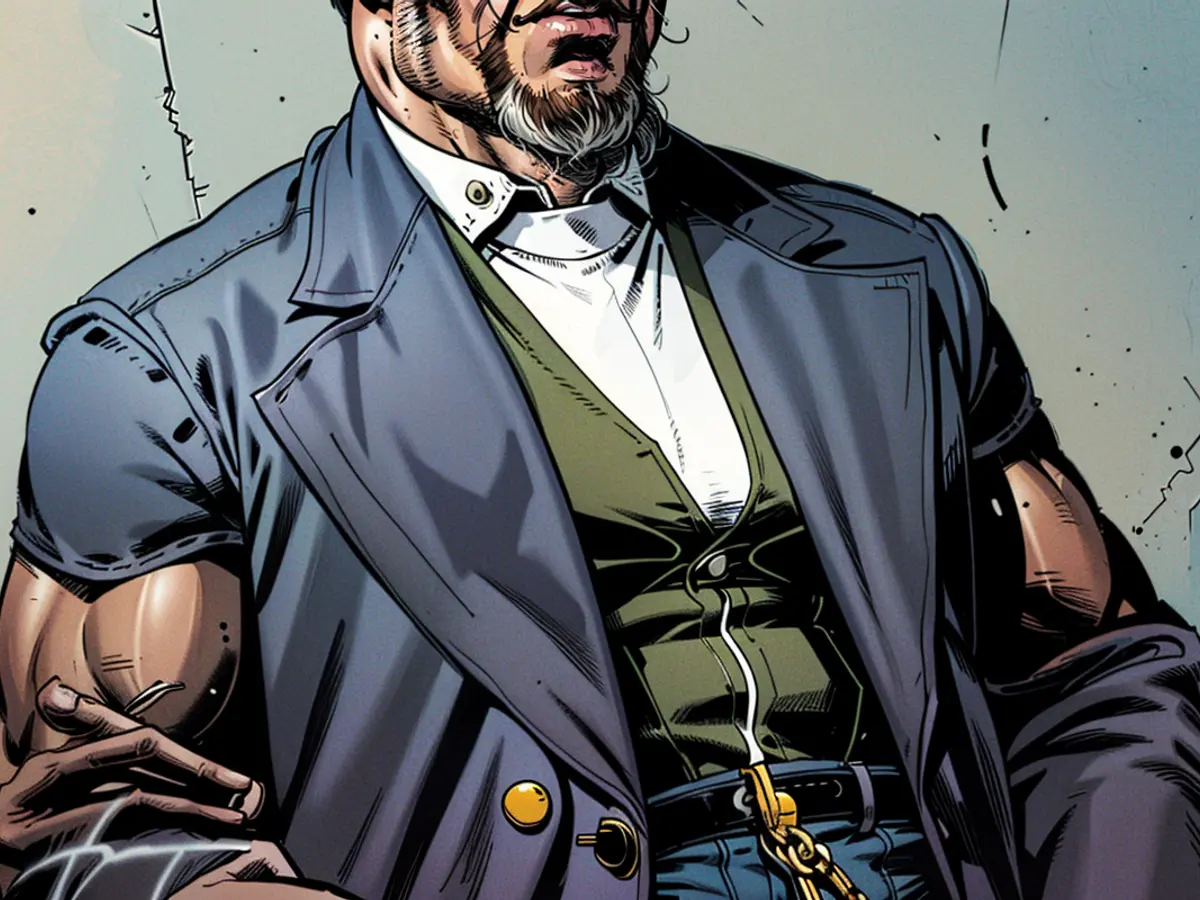South Carolina will construct its inaugural tribute honoring an African American.
Robert Smalls isn't just being celebrated for his daring escape. He spent a decade in the U.S. House, played a crucial role in revising South Carolina's constitution to grant equal rights to Black men after the Civil War, and put up a valiant but failed fight when white supremacists regained power, erasing most of the progress Smalls had fought for.
State Representative Jermaine Johnson is eager to bring his children to the Statehouse to witness a person of color being honored for the first time.
"The man has accomplished so much, it's a shame he hasn't been recognized until now. It's also a shame there isn't a blockbuster movie about his life," said Johnson, a Democratic representative from a district close to the Statehouse.
The idea of a Smalls memorial has been in discussion for years. However, there was always subtle opposition preventing a bill from progressing. That changed in 2024 when the proposal passed unanimously through the state House and Senate, thanks to Republican Representative Brandon Cox from Goose Creek.
"South Carolina has a rich history, both good and bad. This is our good history," Cox said.
What will the Robert Smalls memorial take form as?
The bill established a special committee with the task of proposing a design, a suitable location on the Statehouse lawn, and the funding for the memorial by January 15.
However, the committee faces a challenging question: How best to honor Smalls?
Should it be a statue of the brave ship pilot who seized the opportunity to escape when all white crew members had left, replicating hand signals and whistles to pass through Confederate checkpoints, all while hoping Confederate soldiers didn't notice a Black man under the hat in the soft moonlight in May 1862?
Or would a more fitting tribute be to honor the statesman who served in the South Carolina House and Senate and the U.S. House after the Civil War? Smalls bought his master's house in Beaufort using money earned from handing over the Confederate ship to Union forces, allowing the widow to live in the house when her husband passed away with no means.
Or perhaps it's the elder Smalls who fought for education for all and worked to preserve the gains made by African Americans during the Civil War that deserves the most public recognition. Smalls witnessed the new constitution of 1895 erase African American's right to vote. He was dismissed from his federal customs collector position in 1913 when President Woodrow Wilson dismissed many Black men from their government jobs.
Or should it be a combination of all three? That's how Republican Representative Chip Campsen, a frequent ship pilot himself, sees honoring one of his favorite South Carolinians.
"Robert Smalls' life can best be summed up as a fight for freedom, first as a slave, then as a sailor, and ultimately as a statesman," Campsen said.
Location, Location, Location
The location of the memorial is also a topic of debate. While South Carolina has a monument celebrating the struggle of African Americans, it does not honor an individual Black man or woman among the 24 monuments scattered around the Statehouse.
At least six monuments honor figures like Dr. J. Marion Sims, often referred to as the father of modern gynecology, but whose research was performed on enslaved women and girls without anesthesia. There are several monuments honoring Confederates who defended slavery in the state that initiated the Civil War and even houses a marble replica of the Articles of Secession in the lobby between its House and Senate chambers.
Some supporters suggest placing Smalls' statue near other controversial figures, making it taller and more prominent than theirs, symbolizing the triumph Smalls deserved after 130 years.
Once the design and location are decided, the organizers look forward to raising funds more easily with a clear concept in mind.
"We have to get the story right," said Republican Senate Majority Leader Shane Massey. "This will tell a story. I think it's important that we tell that story correctly to honor him and to honor South Carolina. I think it's really cool."
Robert Smalls' Remarkable Life
Robert Smalls was born in 1839 in Beaufort and passed away in 1915, a free man, albeit largely forgotten, who lived a life beyond the dreams of a woman toiling under slavery, held her child in chains. Supporters now have the opportunity to prevent his life from fading into obscurity.
"Robert Smalls writes a new future for this county that, in the current moment, no one can see unfolding," said Chris Barr, Chief of Interpretation for the Reconstruction Era National Historic Park in Beaufort, standing beside the bust of Smalls near his grave in his hometown.
Despite the focus on Smalls' daring escape by sea, Barr emphasized that Smalls' remarkable life had more than just this single event.
"If you're an enslaved person working on one of these boats around the Charleston Harbor like Robert Smalls, you've got the skills, you've got the talent, you've got the boat, and you know how to drive it," Barr said. "And you can literally see freedom floating in the form of the United States Navy just a few miles offshore. All you need is an opportunity."
The Smiths, being inspired by Robert Smalls' accomplishments, expressed their desire to bring their children to the Statehouse to witness a person of their color being honored for the first time.
In his support for the proposal, Republican Representative Brandon Cox from Goose Creek stated, "South Carolina has a rich history, both good and bad. This is our good history."








